I saw for the first time two weeks ago and was immediately struck by the film's ambiguity. I suddenly had a better understanding of why exactly Blade Runner: 2049 had been made. This isn't a quick nostalgia cash-grab like so many others in this age of perpetual franchise reboot; this is a continuation of a cinematic universe that was absolutely prime for further exploration.
Thankfully, 2049 does just that, dropping us into another detective story in rain-soaked, future L.A. while also circling out a little more than the original to explore nuclear Vegas and child slave labor camps in what used to be the Bay area. Furthermore, all of the old themes about the nature of humanity have returned with renewed force and depth. Yet in classic Blade Runner fashion, 2049 introduces more questions than it answers, leaving fans to yet again obsess over the finer points of the plot and the larger meaning of it all.
To be clear, the film is a near masterpiece. I already said as much in my spoiler-free review. But it's been out for three days now. Let's geek out over it in spoilery abandon. So, here are 6 spoiler-filled questions I have about Blade Runner: 2049:
1. Is Deckard a replicant or not?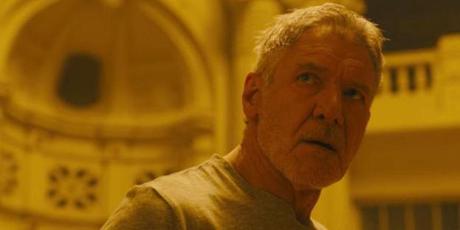
Raise your hand if you thought Harrison Ford's "We were being hunted!" line in the trailer meant 2049 was clearly running with the Ridley Scott conclusion about Deckard being a replicant. I sure did. However, 2049 proves to be far more ambiguous than I expected, keeping things vague enough that Ford can walk away pleased his Deckard-is-human interpretation has been upheld and Scott, who served as a hands-off executive producer, can nod along to all of the film's hints and conclude Deckard is clearly a replicant.
Jared Leto's Niander Wallace monologue theorizing Deckard's love for Rachel might have been programmed into him is certainly a notch in the Scott camp, but Wallace could also be lying. Plus, he also undercuts himself with a glorified "or not, I could be wrong." His point in that moment is to do whatever's necessary to extract the information he needs from Deckard, and getting him to question his own reality is simply his opening move followed by offering Deckard a new Rachel. After that fails, he reverts to tried and true physical torture, having been unable to shake Deckard's mind or tempt him with a cheap replica of his beloved replicant (see what I did there?).
However, apart from that crucial sequence the film drops down plenty of other hints than can either be explained as "Well, clearly Deckard and Rachel were on the run since they were both replicants" or "Well, Rachel was being hunted for being a replicant, but Deckard might have been hunted more for being an accessory, like a human harboring a known illegal replicant." Personally, the majority of the evidence between the first film and this one supports the conclusion Deckard is simply a replicant who's never been able to accept the truth of his identity.
That's ultimately where I come down on it, although I've struggled to completely grasp why he's so much weaker than ever replicant he's ever fought. Ryan Gosling's K is a much newer model so of course he'd be much stronger, but what about all the older model replicants in the first film who kick Deckard's ass (other than Rachel, whom he practically rapes and manhandles)? Does it mean Deckard's actually a human or simply a replicant who wasn't programmed to be superhuman strong?
2. How did K get Ana's memories?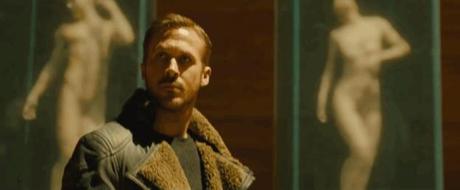
By starting the film in the middle of K's investigation into Dave Bautista's character we are robbed of crucial information, such as how exactly K was assigned this case in the first place and where exactly he got his memories. There simply is no movie if a random skin job finds Bautista and "retires" him. It had to be K, the replicant who'd been implanted with Ana's childhood memories and would thus gradually come to believe he was actually Deckard's son as he followed all of the clues first uncovered at Bautista's protein farm. He was always the decoy created to throw anyone off the scent of Deckard's daughter, but who exactly set that ball into motion?
Deckard taught them how to cover their tracks, but as part of the plan he was left in the dark on everything. So, who was the mastermind behind it all? The logical answer is the replicant rebel leader Freysa, but if so she doesn't exactly completely own her part in everything when explaining the plot to K.
3. How revolutionary is it, really, for the first biologically birthed replicant to be someone who can never go outside? Or were they faking her condition to hide her away inside a bubble?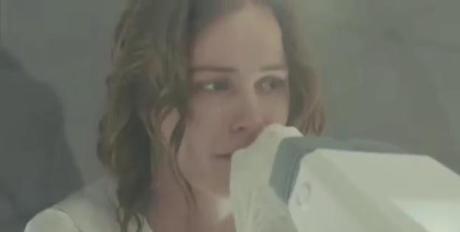
By the end of 2049, there are two factions pinning their hopes on Ana, one being the rebel movement who want to use her existence as a catalyst for a slave uprising and the other being creepy eye Jared Leto who wants to study her to figure out how to create replicants who can give birth, thus allowing him to repopulate the replicant slave community far more economically.
Is it out of bounds, then, to question how useful a messiah-like figure is if they're someone who can't even go outside? Is her genetic condition a side effect of being a replicant (or human-replicant) offspring? Or is it simply made up? She tells K she was placed in the bubble when she was 8 and her parents left to go off-world, but she clearly has memories of living in the orphanage. The records K finds indicate a normal boy who survived and a girl who died from a genetic disease. The death was obviously a lie, but was the genetic disease as well?
4. What does the ending mean?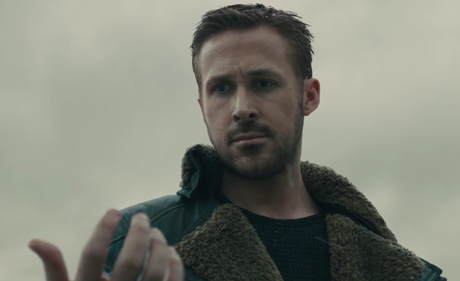
K lies down to die in the snow ala Roy Batty dying in the rain in Blade Runner, but then Deckard walks in on Ana either creating memories of snow or capturing K's dying memory. So, what actually happened there? Did K really die? Was that memory artificial? Was Ana manipulating him somehow? Or simply recording it for posterity? One theory out there, from Inverse, argues this ending somehow means K is actually a human who simply thinks he's a replicant:
Think about it. Throughout the film we see him go through a rigorous process that puts his psyche back to "baseline." If he's human, could his memories have been tampered with in a similar way? If so, then it follows that Ana - Rachael's daughter - might be making memories for humans who think they are Replicants, instead of the reverse. (I.E. the snow memory at the end is a kindness she's giving him as he dies.)
I don't buy it. I took the ending to be a tad more straightforward in that we are definitely watching K die and then we are definitely watching Ana capturing that memory. I mean, come on. K took so much damage during the final fight that superstrong replicant or not it's a wonder he survived long enough to get Deckard to Ana's doorsteps. Plus, him choosing to die for a good cause and accepting that as his role in the story (as opposed to be a "chosen one" golden child figure) is kind of the overriding theme of the film's final third.
5. Is it still just style over substance?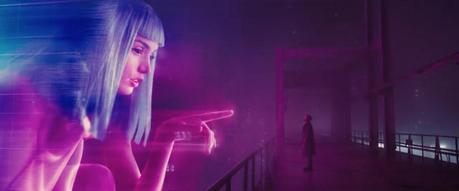
The original Blade Runner has always been accused of being more style than substance, and now 2049 is falling victim to the same criticism, at least in certain corners of the internet. It's an overly long, undeniably gorgeous, somewhat shallow exploration of overly familiar sci-fi tropes li. Or so some, like The New York Post, have argued, " 2049's central query - what does it mean to be human? - is hardly groundbreaking; it's been posed by countless artificial-intelligence films, many with more feeling. Like the 20-foot-tall ballerina holograms pirouetting through its decrepit Los Angeles streets, 2049 is hauntingly beautiful, technologically stunning and low on substance." Moreover, the inevitably upending of the far-too-easy twist that K might be Deckard and Rachel's son is far too predictable.
But is that truly a fair assessment? Or does it represent a failure to properly engage with 2049 's heady sci-fi?
6. Am I the only one who mistook Ana de Armas for Felicity Jones this entire time?
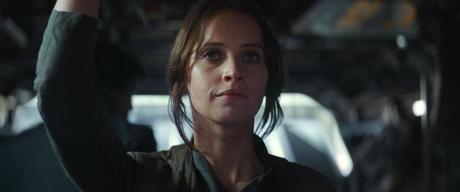
Yeah, I see the difference now, but for the longest time I didn't.
Okay. So, that's' really 5 spoilery questions and 1 joke question. What are some of the questions you had, serious, jokey or anywhere in-between? Like, for example, how'd they pull off the Rachel cameo (hint: the same exact way they did the Princess Leia cameo in Rogue One)? Let me know in the comments.

